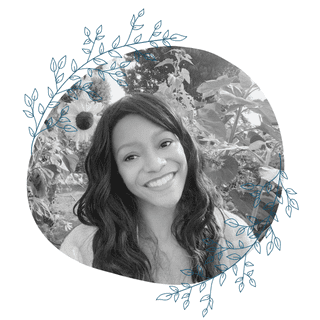A job layoff can feel devastating
Many of us tie a significant part of our identity to our careers. We are often asked at a young age: “What do you want to be when you grow up?” And more, we are expected to actually have a tangible answer. From a very young age we start to build what is called a “work identity”.
A work identity can be defined as the sense of who you are that is linked to your career, roles, and your accomplishments. Naturally, losing that identity in your life can be deeply uncomfortable and confusing.
So where do you start after a job loss? You start with reframing your experience.
Your work identity isn’t the sum total of who you are, even though it feels like it.
You may have heard the saying: “It’s a chapter of your life, not the whole story”. This holds true when you experience an unexpected job loss. What a job loss can be is an opportunity to rediscover yourself and build a stronger identity that reflects your other interests.
Maybe you once really enjoyed volunteering in your community, creative outlets like singing and painting, or maybe you’ve simply realized you can’t remember the last time you sat and had dinner with your family. Your identity outside of work exists. It just takes time to find it.
Take time to acknowledge the grief after job loss.
There are a lot of conversations going around about “hustle culture” and breaking free from it. But like many things in life, it is not that black and white. Acknowledging the job loss shouldn’t be stigmatized. Sharing how deeply you may have cared about the position or your concern about what comes next are all valid ways to express yourself. We have to feel our feelings to begin to work to heal them. It’s normal to feel shocked, angry, or even lost.
Talk to a trusted friend, family member, or even a therapist who has experience supporting individuals experiencing work-related grief and loss. Ultimately, take whatever time you need to process what happened and allow yourself to grieve the layoff.
Prioritize taking care of you.
Sometimes we all need a gentle reminder that we have to take care of ourselves, even during the times when it feels impossible. And don’t worry, self-care doesn’t mean you have to start booking luxury massages or cabin getaways (although if you can, go for it!). Self-care is actually anything you do that nudges you towards feeling more physically, mentally, and spiritually at ease. And it looks different for everyone.
For me after my job loss, simply taking time to bake and try new recipes was my self-care. Pretty soon my kitchen was filled with the scent of freshly baked blueberry muffins, dark chocolate brownies, and perfectly gooey and moist banana bread. For some time, I treated anyone around me in my home like my own very taste-tester. I don’t think I ever baked so much in my life. And I truly needed that.
I won’t lie and say that every day was easy. Because there were many hard ones I struggled with getting out of bed. I had bills piling up as I searched for a new job in a market that seemed like it came to a halt. But the moments of ease helped me through those moments and I even missed them a little once I did start getting busy while landing interviews.
Other important self-care practices you can do for yourself after a job loss:
- Eat nutrient-dense meals
- Get enough sleep
- Add joyful movement or activities you love into your day.
These three habits can help to improve your mood and energy levels, making it easier to tackle the job search when you’re ready.
Focus on building your skills and resume.
Now’s the perfect time to dust off your outdated resume from back when Friends first aired and update your portfolio or LinkedIn profile!
Think about the past few years and highlight your proud moments and achievements. These can be work related or otherwise. What was a time when you showed strong leadership skills or built something you were proud of? If it doesn’t make sense to include it in your resume, include those details in your “About me” page of your portfolio or save them for your next interview.
Your resume is your time to give recruiters and hiring managers a quick glimpse into what skills you bring, so remember to be clear and concise.
Consider taking online courses or workshops to learn new skills.
Learning new skills is one way you can make yourself even more marketable. LinkedIn Learning is a great resource for a variety of courses from marketing to leadership skills. Coursera by Google has several options for beginners and career changes (like me!) that are affordable and high-quality.
Sites like edX offer many free courses for you to audit courses to learn new material without spending the funds. Lastly, you can check out apps like Sololearn which are great for anyone looking to sharpen their technical skills.
Reach out to your network and loved ones.
Reach out to former colleagues, friends, and family members. Anyone in your circle is likely happy to support you in finding your next dream position. Let them know you’re on the job hunt and open to new opportunities. Your network can be a great resource for finding new leads and landing interviews.
Losing a job is difficult, but it doesn’t have to be the end of your story.
This could be a turning point in your life. Loss forces us to ask ourselves hard questions and make decisions like we hadn’t ever before. This new change for you can be a chance to redefine yourself and build an even stronger future that fits your values and dreams in it. Perhaps you will even get back to the version of yourself you have been missing.
Remember, your value isn’t tied to your job title. You are capable, resourceful, and have so much to offer the world both inside and outside of work.
With time and support, you’ll find your way forward and come back stronger than ever before.

Summer West
I’ve experienced grief personally and know how difficult it can be to carry alone. Joining the Embrace Your Grief project is my way of giving back by destigmatizing grief and shedding light on topics that often go unspoken. I want to help create a safe space where people can feel comfortable being themselves and sharing their stories.






Leave a Comment